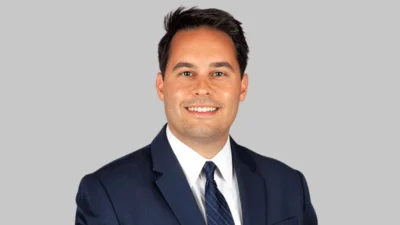The Massengale children. | The Massengale children
The Massengale children. | The Massengale children
As the debate around the Homeschool Act (HB2827) continues to simmer with little movement in Springfield, homeschooling families across the state are voicing concerns over what they see as a sweeping and intrusive attempt to erode their parental rights.
Among them are Megan and Andrew Massengale of Lombard, a homeschooling couple who say the bill, as amended on April 8, poses a serious threat not only to their family’s autonomy but to the broader homeschooling community in Illinois.
“We feel like it’s an attack on parental rights to educate our kids,” Megan Massengale told DuPage Policy Journal.
Along with her husband Andrew, Megan has homeschooled their three children for over a decade. “It’s not just about us—it’s about every family’s right to decide what’s best for their
Andrew echoed the concern.
“We just don't think the government should be coming in and telling parents how to raise their kids,” he said. “Schools are certainly a viable option, but so is homeschooling. That responsibility belongs to parents, not the state.”
Originally sponsored by State Rep. Terra Costa Howard (D-Glen Ellyn), HB2827 was recently amended in a move critics say represents a complete overhaul of the original legislation—one that was introduced with little public notice.
“Just from our perspective, we definitely don't feel represented,” Andrew said.
Despite having spoken with Costa Howard–who represents Lombard–during a video call in September, the Massengales say they’ve been disappointed by her lack of follow-up.
“We invited her to our co-op. She never responded,” Megan said. “And after the amendment came out, I asked for a town hall or a meeting. Still no response.”
Andrew added that Costa Howard’s initial rhetoric over the bill has not held up.
“She said the bill was about helping homeschoolers and coming alongside them,” he said. “But what we’re seeing now is completely different. It’s hard not to feel misled.”
The amendment includes curriculum review requirements, tight withdrawal deadlines and expanded oversight of homeschool families and private schools, which opponents argue amounts to significant government overreach.
“The curriculum review piece—that feels like a major overstep,” Andrew said. “It’s not even about us. Our curriculum would probably pass with no issues. But we know other families who homeschool differently, and we respect those choices. We don’t want them to live in fear over how they raise their children.”
One of the most alarming elements for the Massengales is the provision requiring families to file paperwork within three days of withdrawing a child from school, or risk criminal charges and referral to the Attorney General.
“Your family could be in chaos—dealing with bullying or emotional trauma—and the state is saying a piece of paper is more important than that?” Megan said. “It’s absurd and shows a total lack of understanding about why many families turn to homeschooling in the first place.”
The Massengales are not alone in their concerns. More than 42,000 witness slips have been filed in opposition to HB2827—a striking sign of grassroots mobilization.
Despite the bill's introduction and its sweeping implications, HB2827 has not advanced significantly in the legislature—a sign that public opposition may be having an impact.
Illinois Christian Home Educators and other advocacy groups remain “cautiously optimistic” that the bill will stall.
Critics say the bill stigmatizes homeschoolers by unfairly associating them with child abuse, despite the legislation having stemmed from a case unrelated to homeschooling.
“I was homeschooled my whole life, and my mom faced a lot of stigma back then,” Andrew said. “Now that homeschooling is gaining respect, this bill feels like an attempt to push that stigma back in—equating abuse with homeschooling to scare people back into the public system.”
The couple believes financial incentives may also be at play.
“Schools are paid per student,” Andrew said. “So the more kids in public schools, the more funding they get. Making homeschooling harder is one way to make public schools more financially secure.”
They also worry about the impact the bill could have on communities beyond their own—including Illinois' Amish population.
“Requiring a high school diploma for homeschool teachers would directly impact the Amish,” Megan said. “They don’t issue diplomas. Are we going to tell them their way of life isn’t good enough for the state?”
Andrew agreed, saying the Amish embody core American values.
“The Amish represent the American spirit. If legislation is targeting them—even unintentionally—that’s a big red flag,” he said.






 Alerts Sign-up
Alerts Sign-up